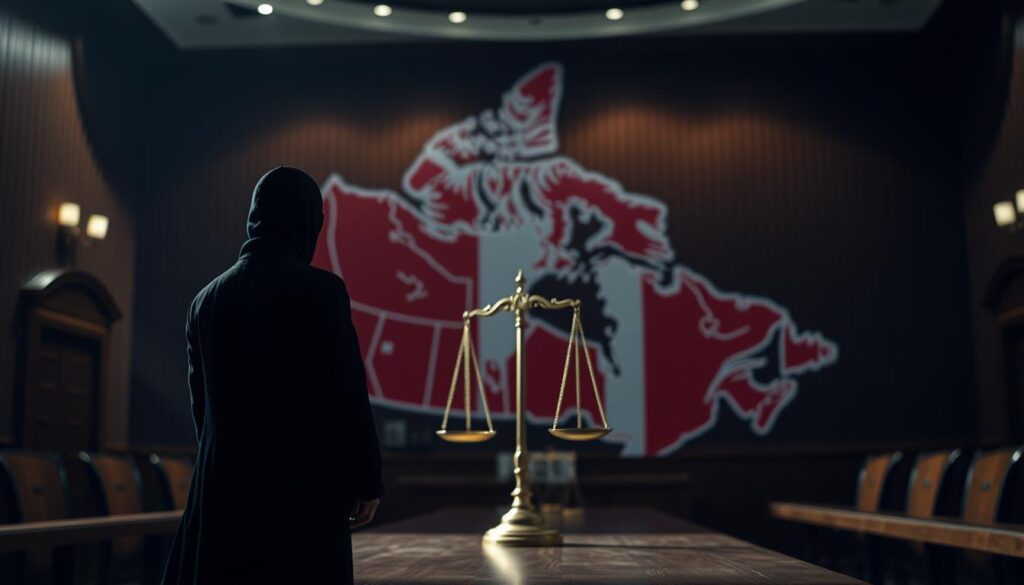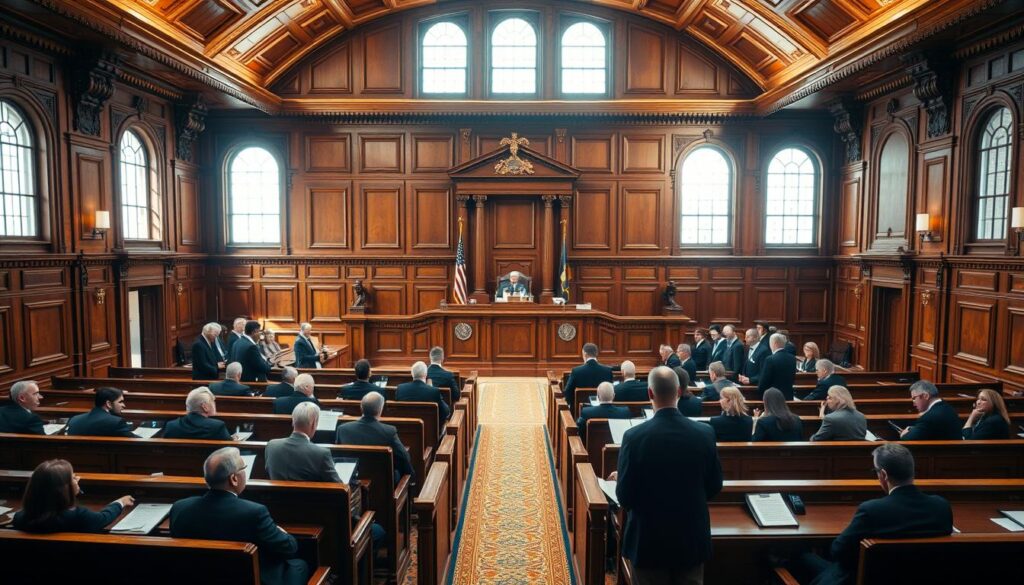Table of Contents
Have you ever wondered if suing for defamation in Canada is the right move? Defamation can deeply impact your reputation and career, making it as much a legal issue as it is a personal one. Under Canadian law, defamation is divided into libel (written) and slander (spoken), each with its own legal implications. This article explores both common law and Quebec’s civil law perspectives, offering a comprehensive guide to legal options, defenses, and strategies for litigation.
From high-profile cases like Hill v. Church of Scientology of to Crookes v. Newton, we examine how courts balance free expression with reputational harm. Whether you’re a legal professional or someone seeking guidance, this expert yet approachable guide will help you navigate the complexities of defamation law in Canada.
Overview of Defamation Law in Canada
Defamation law in Canada is designed to protect individuals and organizations from false statements that can harm their reputation. Understanding the basics of defamation is crucial for anyone considering legal action. Defamation is broadly categorized into libel and slander, with libel referring to written statements and slander to spoken ones. Each form has distinct legal implications, as outlined in Canadian jurisprudence.
Defamation Basics: Libel and Slander
Libel involves written or published statements, such as those found in newspapers, magazines, or online platforms. Slander, on the other hand, pertains to spoken words. Both can cause significant reputational damage. For instance, a false statement made about a professional’s integrity can lead to loss of business and personal distress.
Historical Context and Jurisdiction
Canadian defamation law draws heavily from English common law. Over time, the legal system has evolved, particularly in distinguishing between libel and slander. Jurisdictional differences play a key role. Common law provinces and Quebec’s civil law system, rooted in French legal traditions, approach defamation cases with distinct legal frameworks. Understanding these differences is essential for navigating defamation claims across Canadian provinces.
The legal framework also emphasizes the importance of truth as an absolute defence. If the defendant can prove the statement was true, it can dismiss the defamation claim. Additionally, defences like fair comment and responsible communication have evolved, providing protections for statements made without malice and in the public interest.
Historically, landmark cases have shaped the legal landscape. Courts have balanced the need to protect reputation with the importance of free expression. This balance ensures that legal protections are robust yet fair, reflecting the evolving nature of communication in modern society.
Understanding Defamation in Canada
Defamation law in Canada is designed to protect individuals and organizations from false statements that can harm their reputation. Understanding the basics of defamation is crucial for anyone considering legal action. Defamation is broadly categorized into libel and slander, with libel referring to written statements and slander to spoken ones. Each form has distinct legal implications, as outlined in Canadian jurisprudence.

Historically, landmark cases have shaped the legal landscape. For instance, the Supreme Court of Canada ruled in Grant v. Torstar Corp. (2009) that existing defamation law was overly strict, which may discourage the publication of information in the public interest. This ruling highlights the delicate balance courts must strike between protecting reputation and safeguarding free speech.
The legal framework also emphasizes the importance of truth as an absolute defence. If the defendant can prove the statement was true, it can dismiss the defamation claim. Additionally, defences like fair comment and responsible communication have evolved, providing protections for statements made without malice and in the public interest.
| Case | Year | Key Ruling |
|---|---|---|
| Hill v. Church of Scientology | 1995 | Largest award for defamation in Canada ($1.6 million) |
| Grant v. Torstar Corp. | 2009 | Defamation law was overly strict, discouraging public interest information |
| Crookes v. Newton | 2011 | Hyperlinks to defamatory material don’t make one liable for defamation |
Recent cases, such as Crookes v. Newton (2011), have further clarified that publishing a hyperlink to defamatory material does not make one liable for defamation, enhancing protections for journalists and publishers. These rulings illustrate the practical impact of defamation law in Canada and the evolving nature of legal interpretations.
Legal Options and Defences
When addressing defamation claims, understanding the legal options and defences available is crucial. Defamation law provides several avenues for both plaintiffs and defendants to seek resolution, ensuring a balance between protecting reputations and upholding freedom of expression.

Truth and Justification
One of the most potent defences in defamation cases is truth. If the defendant can prove the statement was true, the claim may be dismissed. This defence requires robust evidence, as the burden of proof lies with the defendant to demonstrate the statement’s veracity.
Fair Comment and Responsible Communication
Fair comment serves as another key defence, applicable when statements are made in good faith on matters of public interest. It must be recognizable as commentary, based on fact, and free from malice. The Supreme Court’s ruling in Grant v. Torstar Corp. introduced the defence of responsible communication, particularly benefiting journalists reporting on public interest issues. This defence considers factors like the urgency of the matter and the reliability of sources.
The court also examines whether the plaintiff’s side was sought and accurately reported. This ensures a fair and balanced approach, reflecting the delicate balance between reputation and free expression. Legal experts often emphasize the importance of these defences in modern jurisprudence.
Reputational Harm and Impact on Careers
Defamation lawsuits can inflict significant reputational damage, even before a court reaches a decision. The mere allegation can tarnish a person’s image, affecting their career prospects and personal life. This phenomenon, known as libel chill, can stifle free expression, as individuals and organizations may self-censor to avoid potential legal battles.
In Canada, real-life cases illustrate how reputational harm can lead to job loss and strained personal relationships. For instance, a false statement about a professional’s integrity can result in lost business opportunities. Legal experts often highlight such cases to emphasize the delicate balance between protecting reputation and ensuring free expression.

The financial and emotional costs of defamation litigation are substantial. Court battles can be lengthy and draining, prompting many to seek alternative dispute resolution. Mediation and settlement negotiations offer paths to avoid prolonged legal fights, preserving reputations and livelihoods. Understanding these options is crucial for anyone facing defamation claims.
Court Processes and Litigation Strategy
Navigating the legal landscape of defamation in Canada involves a complex interplay of court procedures and strategic litigation strategies. Understanding these elements is crucial for both plaintiffs and defendants to navigate the legal system effectively.
Court Procedures and Strategic Lawsuits (SLAPPs)
Court procedures in defamation cases typically involve a structured process, starting from filing the claim to the final judgment. Strategic Lawsuits Against Public Participation (SLAPPs) are often used to silence critics by burdening them with legal costs and delays. However, Canadian courts have implemented measures to curb such tactics, ensuring that public interest discussions remain protected.
Jurisdiction and Publication Challenges
Jurisdictional issues can complicate defamation cases, especially with the rise of online content. The internet’s global nature often leads to debates about which court has the authority to hear a case. Additionally, defendants may face challenges in proving that a defamatory statement was published within a specific jurisdiction, particularly in cases involving digital platforms.
| Case | Year | Key Ruling |
|---|---|---|
| Crookes v. Newton | 2011 | Hyperlinks to defamatory content do not make one liable for defamation. |
| Éditions Écosociété Inc. v. Banro Corp. | 2012 | Clarified the jurisdictional challenges in internet defamation cases. |
For those seeking deeper insights into defamation law, A Practical Guide to the Law of offers comprehensive coverage of legal principles and practical applications.

Internet, Hyperlinks, and Modern Defamation Cases
The rise of the internet and social media has transformed how defamation cases are handled in Canada. The internet’s global nature has introduced new challenges in determining jurisdiction and liability, particularly in cases involving hyperlinks to defamatory content.
Navigating Online Defamation and Hyperlink Precedents
The landmark case of Crookes v. Newton (2011) set a significant precedent. The Supreme Court of Canada ruled that merely sharing a hyperlink to defamatory material does not constitute publication of that material. This decision was crucial in protecting free expression online while addressing reputational risks.
The Role of Social Media in Publication
Social media platforms have become both a tool for free expression and a potential source of reputational harm. Courts now face the challenge of balancing the protection of reputation with the need to safeguard open communication in digital spaces. The legal system continues to evolve to address these complexities, ensuring that online interactions remain fair and just.

Understanding digital publication is essential for navigating modern defamation claims. As the internet continues to shape communication, the legal framework must adapt to provide clear guidance and protections for all parties involved.
Provincial Nuances and Quebec’s Civil Law Perspective
Canada’s legal landscape is marked by diverse approaches to defamation, with significant variations across provinces. Quebec stands out due to its civil law tradition, which differs from the common law system prevalent in other regions.
Common Law versus Civil Code Approaches
While common law provinces rely on precedents and detailed defamation laws, Quebec’s legal framework is rooted in the Civil Code of Quebec. This code doesn’t specifically address defamation, leading courts to apply general civil liability principles. This distinction significantly influences how cases are handled in Quebec compared to other provinces.
Historically, Quebec’s legal system, influenced by French civil law, emphasizes the unreasonableness of statements over their truthfulness. This approach often results in different outcomes for both plaintiffs and defendants. For instance, Quebec courts may award exemplary damages for statements made with intent or recklessness, a stance not typically seen under common law.
| Case | Year | Key Ruling |
|---|---|---|
| Crookes v. Newton | 2011 | Hyperlinks to defamatory content don’t constitute publication. |
| Éditions Écosociété Inc. v. Banro Corp. | 2012 | Clarified jurisdictional challenges in internet defamation cases. |
These cases highlight the unique challenges in Quebec, particularly in cyber defamation and cross-border reputational harm. Legal practitioners must understand these nuances for effective management of defamation cases across jurisdictions.

For deeper insights, consult legal experts who specialize in cross-provincial defamation matters.
Conclusion
In considering whether to pursue a defamation lawsuit, it’s important to weigh the potential benefits against the risks. Defamation cases in Canada involve complex legal processes, balancing the protection of reputation with the preservation of free expression. The legal system offers various defences, such as truth and fair comment, which can significantly influence the outcome of a case.
The legal landscape continues to evolve, particularly in addressing online defamation and the challenges posed by digital platforms. Courts are increasingly tasked with adapting traditional legal principles to modern communication methods. Understanding both common law and civil law perspectives is essential for anyone contemplating legal action, as these frameworks shape the approach to defamation cases across different provinces.
Given the complexity of these issues, seeking expert legal advice is crucial. Legal professionals can provide guidance tailored to the specific circumstances of each case, helping individuals navigate the nuanced trade-offs involved. Ultimately, deciding whether to pursue a defamation lawsuit requires careful consideration of both the legal and personal implications.



